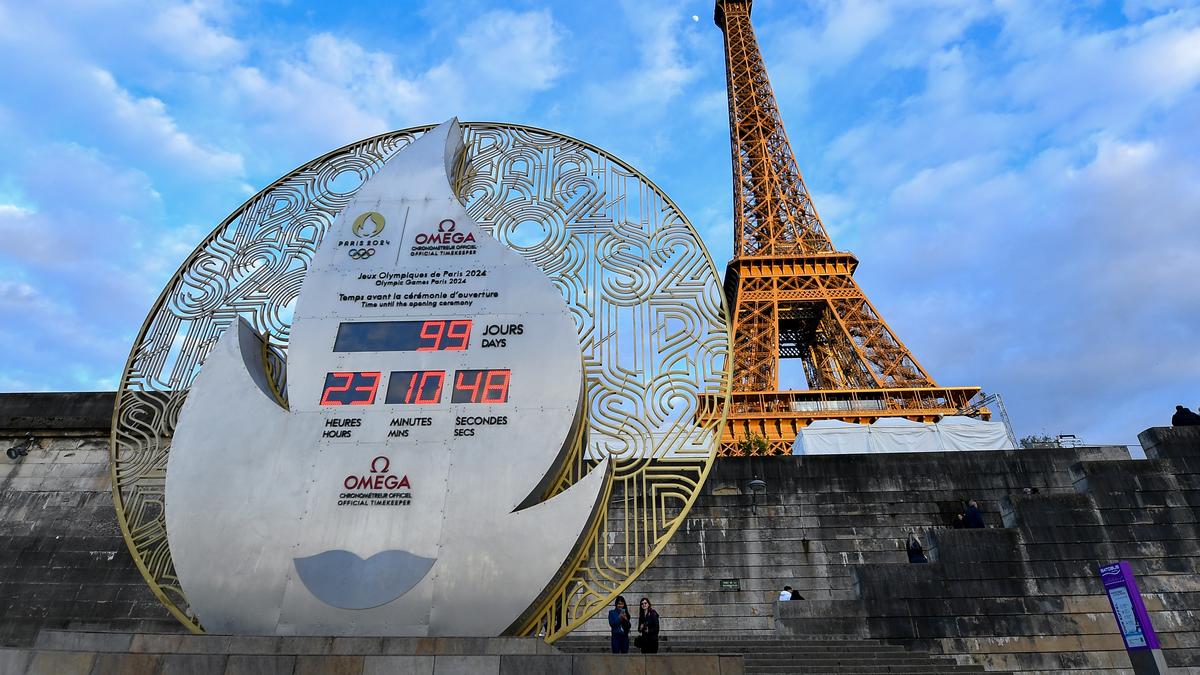The Olympic Games Paris 2024 concluded with a grand closing ceremony on August 11, drawing the curtain on an event that had millions of people glued to their screens, cheering for their country’s best athletes. After 16 days of historic sporting achievements, the USA emerged at the top of the medal tally with 40 gold, 44 silver, and 42 bronze medals. China followed closely in second place with 40 gold, 27 silver, and 24 bronze medals.
These medals — won, lost, and contested — were often determined by mere milliseconds, making one wonder: who ensured that everything was fair in the city of love? The record-breaking performances were measured by a team of timekeepers and professionals from Swiss luxury watchmaker Omega, marking their 31st consecutive appearance as the official timekeeper of the Olympic Games since 1932. For the Paris Games, Omega deployed 550 timekeepers, 350 tonnes of state-of-the-art equipment (including swimming touchpads, electronic starting pistols, and athletics starting blocks), and a team of 900 trained volunteers to ensure precision across all 329 events in 32 sports. These timekeepers were present at every venue — from the Eiffel Tower Stadium to the Grand Palais and the Château de Versailles — with a bullseye on the clock.

According to Omega, the Paris 2024 Games made history with 132 Olympic records and 22 world records. One of the most challenging decisions was the Men’s 100m final, where both Noah Lyles of the USA and K. Thompson of Jamaica finished neck and neck, each clocking 9.
79 seconds. Omega’s photofinish camera, capable of capturing 40,000 images per second, determined Lyles as the gold medallist by a mere 0.005 seconds.
The men’s 100m final of the athletics event at the Paris 2024 Olympic Games at Stade de France in Saint-Denis| Photo Credit:JEWEL SAMAD Other standout performances captured by Omega’s technology included Bobby Finke’s new world record in the men’s 1500m freestyle swimming event, clocking in at 14:30.67 minutes. Léon Marchand of France claimed four swimming gold medals, set four new Olympic records, and added a bronze to his collection.
He also broke Michael Phelps’ 2008 record with a time of 4:02.95 minutes in the 400-meter individual medley. Kaylee McKeown of Australia secured double backstroke gold in the Women’s 100m (57.
33 seconds) and 200m (2:03.73 minutes), setting new Olympic records in both events. British cyclists Emma Finucane, Katy Marchant, and Sophie Capewell set a world record on the women’s team sprint final, winning gold in 45.
186 seconds. Additionally, America’s Sydney McLaughlin-Levrone shattered her own world record in the 400-meter hurdles, claiming gold with a time of 50.37 seconds.
The latest of the Paris Olympics timepiece collections from Omega consists of the Omega Paris 2024 Bronze Gold Edition. It features a 39 mm case in Bronze Gold, a dial in Ag 925 silver, and hands in 18K Sedna Gold with a PVD Bronze Gold coating — encompassing all three materials of the medals rewarded to winning athletes. The timepiece is driven by the Co-Axial Master Chronometer Calibre 8926, to guarantee precision.
With over nine decades of experience, Omega brought its expertise to the Paris Games and will continue to do so until 2032 in Brisbane, Australia, marking a century of accurate decisions. As the world’s greatest sporting spectacle moves to future events in Milano-Cortina 2026, Los Angeles 2028, and the French Alps 2030, Omega remains the unwavering guardian of time. Copy link Email Facebook Twitter Telegram LinkedIn WhatsApp Reddit.



















